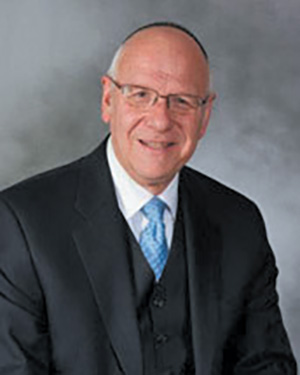
Parshat Behar
The navi Yirmiyahu has been referred to as the “prophet of doom,” the seer who was vilified by many of his contemporaries for his constant rebuke of the sinful nation and for his predictions of the approaching catastrophe. He was the tragic figure who was fated to live through the very horrors of which he himself warned the nation. But his book also includes his prophecies of hope and comfort. Today’s haftarah is taken from Perek 32, one of those chapters of “nechama,” consolation.
As our parsha today focuses upon the laws of “geula,” the obligation of a relative to redeem any parcel of the family estate that had been sold due to poverty, so too this selection from Sefer Yirmiyahu tells of God’s command to the prophet to redeem a field that was sold by his poverty-stricken cousin—an event that would seem quite trivial and would appear unnecessarily included in the prophet’s writings. But once we understand the background of the entire story, we will appreciate its importance and perhaps regard it, as I do, as one of the most moving and uplifting prophecies of Yirmiyahu’s life.
A simple reading of the text might lead us to believe that the chapter deals solely with the rather dry laws of redemption and purchase of fields in ancient Judea. But upon closer analysis, a moving story unfolds before us. The enemy was besieging the Holy City and building ramparts to enter Yerushalayim. At that same time, Yirmiyahu was imprisoned by the king Tzidkiyahu for having predicted the fall of the city and the capture of the king, who would be brought in chains to Babylonia. The furious regent questioned the veracity of the prophecy, denying that it came from Hashem. In order to convince his guards that he spoke the truth, Yirmiyahu prophesied that he would soon be visited by his cousin Chanam’el, who would request that he redeem his field. Indeed, that is exactly what happened.
After going through the legal transactions to return the field back to the family, the prophet turns to God with a logical but unexpected question. Yirmiyahu tells Hashem that he knows God is all-powerful and that there is nothing beyond His abilities. He continues and says, “The ramparts have reached the city (walls) and the city has been given to the attacking Chaldeans…just as You said. And yet, you tell me to purchase the field with money and before witnesses—but the city is being given to the Chaldeans???!!” The prophet cannot understand the logic of purchasing a field that would soon belong to the enemy!
But Hashem’s answered clearly—even before the question was asked. He explained that there was a very important purpose for the purchase of the field. The people must know, “Od yikkanu vatim v’sadot uch’ramim ba’aretz hazot,” “Houses and fields and vineyards will yet be bought in this land!” There is a future! There is hope! And with these simple words, God comforts a soon-to-be-exiled nation by telling them that they will yet return and rebuild their lives in their land.
And how fortunate are we to be doing just that!
By Rabbi Neil N. Winkler
Rabbi Neil Winkler is the rabbi emeritus of the Young Israel of Fort Lee and now lives in Israel.









